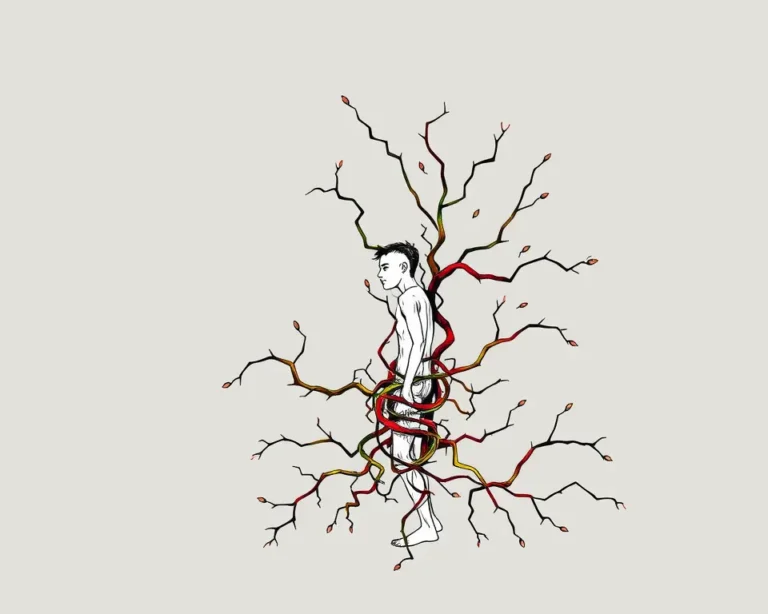Social media has revolutionized how we communicate, learn, and seek support. It has also become a breeding ground for mental health misinformation, with potentially harmful consequences. Experts are increasingly concerned about the proliferation of myths and inaccurate advice on platforms like TikTok, Instagram, and Facebook, warning of the risks they pose to vulnerable individuals. This article explores the prevalence of these myths, their potential impact, and what can be done to combat them.
The Rise of Mental Health Misinformation
In recent years, discussions about mental health have become increasingly common on social media. While this increased awareness can be positive, it has also created an environment where misinformation can thrive. A recent study revealed that over half of the most popular TikTok videos related to mental health spread inaccurate information. This misinformation often takes the form of oversimplified advice, misuse of therapeutic language, and generalizations that trivialize complex conditions.
One analysis of 500 TikTok videos with the hashtags #mentalhealth or #mentalhealthtips found that more than 80% were misleading. Similarly, a review article identified pervasive misinformation on topics such as men’s sexual health, neurodevelopmental disorders, and trauma disorders. These findings highlight the alarming extent to which social media platforms are contributing to the spread of inaccurate mental health information.
Why is Mental Health Misinformation so Prevalent?
Several factors contribute to the prevalence of mental health misinformation on social media:
- Lack of Regulation: Social media platforms often lack strict regulations regarding the accuracy of health-related content. This allows anyone, regardless of their qualifications, to share information about mental health.
- Algorithmic Amplification: Algorithms prioritize engagement, meaning sensational or emotionally charged content often reaches a wider audience, even if it is inaccurate.
- Accessibility and Anonymity: Social media provides a space for individuals to share personal anecdotes and opinions without being held accountable for the accuracy of their claims.
- Desire for Quick Solutions: Many people turn to social media seeking instant relief or solutions for mental health challenges. This makes them vulnerable to misleading content that promises easy cures or quick fixes.
- Illusory Truth Effect: Repeated exposure to misinformation can make it seem more accurate and believable over time. This effect relies on familiarity, processing fluency, and understanding as signals of truth.
The Dangers of Believing the Myths
The spread of mental health misinformation can have serious consequences for individuals and communities:
- Self-Diagnosis and Misdiagnosis: Social media content often encourages self-diagnosis, leading individuals to believe they have a particular condition without consulting a professional. This can result in misdiagnosis and inappropriate treatment.
- Delay in Seeking Professional Help: People may delay or avoid seeking professional help if they believe misinformation they encounter online. They might think that social media content is helping them, which might worsen their psychological states.
- Harmful Coping Mechanisms: Misinformation can lead individuals to adopt ineffective or even harmful coping mechanisms, such as stopping medication or engaging in self-destructive behaviors.
- Erosion of Trust in Mental Health Professionals: The spread of misinformation can erode trust in mental health providers, making it more difficult for individuals to seek and receive appropriate care.
- Stigmatization and Trivialization: Oversimplified or inaccurate portrayals of mental illness can trivialize the experiences of those living with these conditions and reinforce harmful stereotypes.
- Worsening of Existing Mental Health Issues: Social media can exacerbate existing mental health issues. For example, someone with obsessive-compulsive disorder (OCD) may seek reassurance or search up information on social media which can inadvertently expose them to messages that reinforce his unhealthy thoughts and behaviors, hindering his recovery journey.
Common Mental Health Myths on Social Media
Here are some common mental health myths that circulate on social media:
Myth: Mental health issues are a sign of weakness.
- Fact: Mental health struggles aren’t about weakness or character flaws. Environmental factors, genetics, and other stressors play a role. Just as we don’t see someone with the flu as weak, mental health challenges don’t define a person. Seeking help when struggling is a sign of resilience and strength.
Myth: Therapy is only for people with serious mental illness.
- Fact: Therapy can be beneficial for anyone, not just those with mental illness. While therapy is an essential tool for treating conditions such as depression and anxiety, many people find that it is also useful for navigating the daily stressors of life, including work and relationships.
Myth: Medications will change who I am or make me feel unlike myself.
- Fact: Medications aim to reduce symptoms, not change who you are. Finding the right medication takes time and involves trial and error with your doctor to get the best results with minimal side effects.
Myth: Talking about mental health makes things worse.
- Fact: Talking about mental health does not make things worse. In fact, it often helps to reduce stigma and encourage people to seek help.
Myth: People with mental illnesses are violent.
- Fact: Those living with a mental illness are no more likely to be violent than any other person. In fact, people with mental illness are more likely to be victims of a crime than the perpetrator.
Myth: Social media causes depression and anxiety.
- Fact: While some studies have found a correlation between heavy social media use and an increased risk of depression and anxiety, it is not clear that social media use is the direct cause. Other factors, such as cyberbullying, social comparison, and lack of sleep, may contribute to these issues.
Myth: You can cure mental illness with positive thinking or lifestyle changes alone.
- Fact: While positive thinking and lifestyle changes can be helpful in managing mental health, they are not always sufficient to treat mental illness. Professional treatment, such as therapy and medication, may be necessary.
Myth: Everyone experiences PTSD in the same way, with similar symptoms that can be adequately explained in a short video.
- Fact: Each individual experiences PTSD differently. Oversimplifying complex conditions such as PTSD can make viewers feel like a failure when suggested tips don’t provide an easy cure.
How to Spot Misinformation
It’s essential to be able to identify misinformation online. Here are some tips:
- Check the Source: Is the information coming from a qualified mental health professional or a reputable organization? Look for websites ending in .gov, .edu, or .org.
- Be Wary of Sensationalism: Does the content use emotionally charged language or make exaggerated claims? Misinformation often relies on sensationalism to grab attention.
- Look for Evidence: Is the information supported by scientific evidence or credible sources? Be skeptical of claims based solely on personal anecdotes or opinions.
- Cross-Reference Information: Check the information against other reputable sources to see if it is consistent.
- Beware of Quick Fixes: Be wary of content that promises easy cures or quick fixes for mental health challenges. Mental health treatment is often a complex and ongoing process.
- Consider the Motivation: Who is sharing the information, and what is their motivation? Are they trying to sell something or promote a particular agenda?
Strategies to Combat Mental Health Misinformation
Combating the spread of mental health misinformation requires a multi-faceted approach:
- Promote Media Literacy: Educate individuals on how to critically evaluate online information and identify misinformation.
- Support Mental Health Education: Increase access to accurate and evidence-based mental health information through schools, community organizations, and online resources.
- Encourage Responsible Social Media Use: Promote healthy social media habits, such as limiting screen time, being mindful of content consumed, and engaging in positive online interactions.
- Amplify Expert Voices: Elevate the voices of qualified mental health professionals and researchers on social media to counter misinformation with accurate information.
- Fact-Check and Debunk Myths: Actively fact-check and debunk mental health myths on social media platforms.
- Advocate for Platform Accountability: Encourage social media platforms to implement stronger safeguards against the spread of harmful misinformation.
- Foster Open and Honest Conversations: Create safe spaces for individuals to share their experiences with mental health and seek support without judgment.
- Promote Help-Seeking Behaviors: Encourage people to seek professional help when they are struggling with their mental health.
The Role of Mental Health Professionals
Mental health professionals play a crucial role in combating misinformation and providing accurate information. They can:
- Engage on Social Media: Share evidence-based information and debunk myths on social media platforms.
- Educate Clients: Discuss the potential risks of relying on social media for mental health information and encourage clients to seek professional guidance.
- Address Misinformation in Therapy: If clients bring up misinformation they have encountered online, address it directly and provide accurate information.
- Advocate for Change: Advocate for stronger regulations and policies to address the spread of mental health misinformation.
Reliable Resources for Mental Health Information
When seeking mental health information online, it is essential to rely on trustworthy sources. Here are some reliable resources:
- National Institute of Mental Health (NIMH)
- National Alliance on Mental Illness (NAMI)
- Mental Health America (MHA)
- American Psychiatric Association (APA)
- American Psychological Association (APA)
- Mayo Clinic
- Harvard Medical School
Conclusion
The proliferation of mental health misinformation on social media poses a significant threat to individuals and communities. By understanding the prevalence of these myths, their potential impact, and how to spot them, we can take steps to protect ourselves and others. It is crucial to promote media literacy, support mental health education, and rely on trustworthy sources for accurate information. Together, we can combat the spread of misinformation and create a more informed and supportive online environment for mental health.







